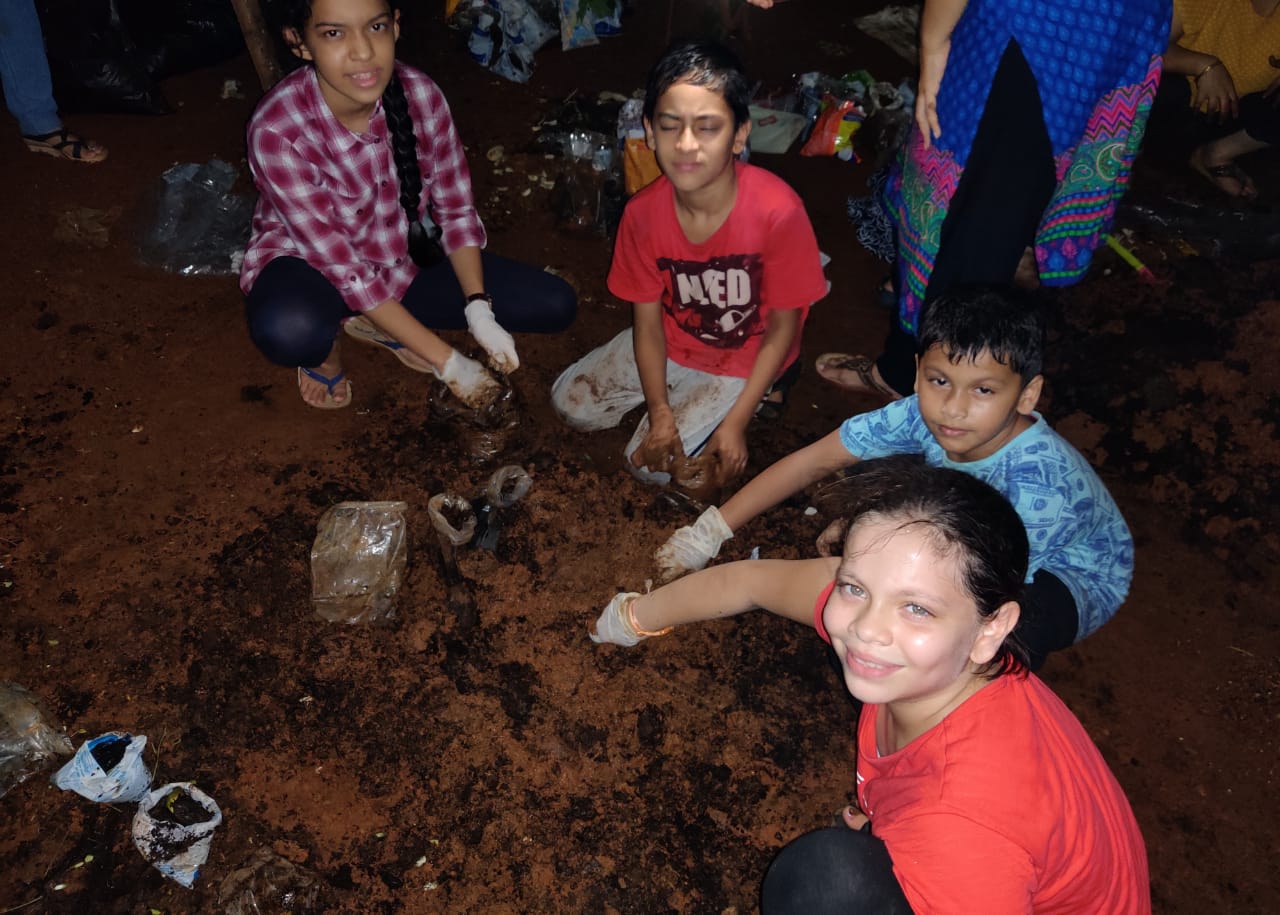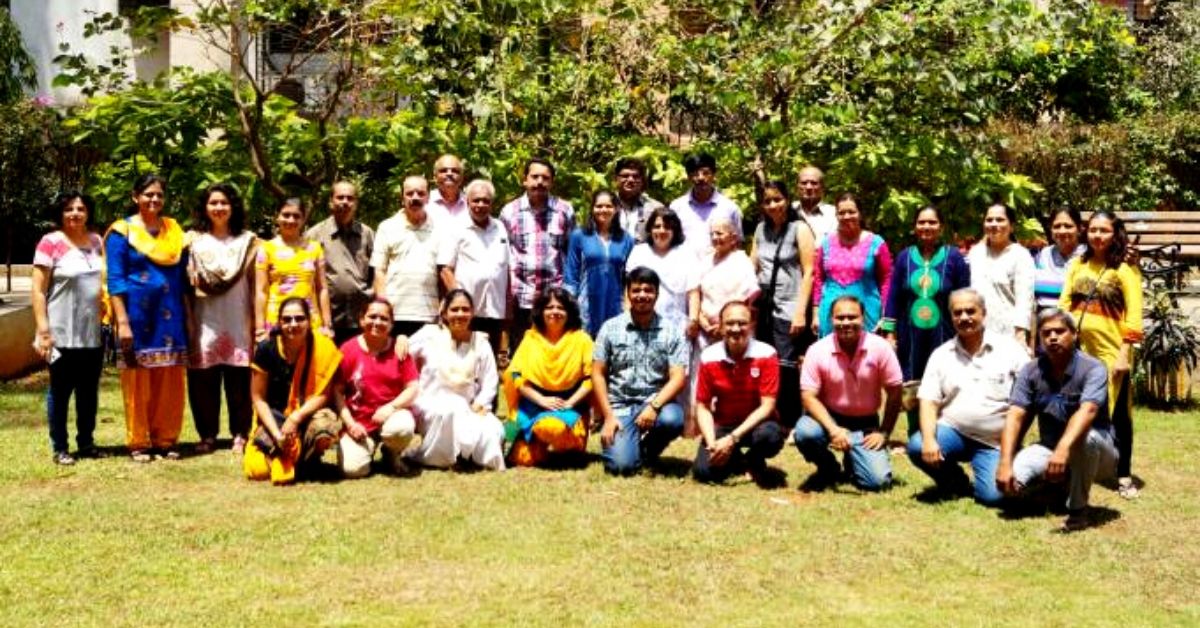A decade ago, the Vijaynagar Housing Society in Andheri East, Mumbai, was a simple 60-year-old apartment complex, comprising of chawls that housed nearly 2000 residents. But change came in 2010 when the buildings eventually underwent a redevelopment into multi-storied towers. The residents wanted to be active contributors to a greener environment by deciding to practice a more sustainable way of living.
“We decided that we will practise waste segregation henceforth in our complex. Thus, we started our journey towards zero-waste way back at a time when the concept was not even nearly as popular,” shares Sukruta Pethe, a Physics professor and a resident of the Vijaynagar Society.
The Zero Garbage Project was launched on 1st January 2015 at Vijaynagar Society, thereby officially inducting the members of the residential community into the green endeavour.
Since then the society has recycled 5 lakh kilo of waste! The entire project has been designed to be extremely cost-effective, so that each family need not spend more than Rs 100 a month for going zero-waste.
How Vijaynagar Society is going Zero-Waste

As mandated by the basic norms of zero-waste living, household waste at the society is segregated into three categories – dry, wet and bio-waste like used diapers, sanitary napkins and medical waste.
The housekeeping staff collects the segregated garbage from door to door. While the bio-waste is deposited in the municipal waste collection vehicle, the dry waste is sent for recycling to a nearby plant and wet garbage is composted in the campus.
“We have employed three Parisar Bhaginis. They take care of all composting procedure for wet waste. We use natural bacterial composting method developed by Padmashree Dr Sharad Kale, a retired scientist from BARC, Mumbai,” Pethe informs.
“After continuous research, we managed to curtail some hurdles we faced at the initial stages and since July 2015, the process of composting is effectively under control,” she adds.
5,00,000 kgs of Waste Recycled
The project was led by Mahesh Athalye, Sukruta Pethe, Varsha Bapat, Vinayak Antarkar, Anagha Londhe and was well supported by all the residents and the Managing Committee of the society.
At present, the project has around 60 volunteers who often carry out various Zero Garbage related activities in the society.
So how has the Zero-Garbage Project helped Vijaynagar reduce their trash load? Pethe tabulates the data for us, “Prior to the Zero Garbage Project, our society used to send around 9,000 kgs of garbage monthly to the dumping ground. Now, we effectively manage the garbage in the following manner on a monthly basis:
- Approximately 4,500 kgs of wet garbage gets converted into 500 kgs of organic manure per month.
- 4,500 kgs of dry garbage is sent for recycling.
- 1,200 kgs of bio-waste is sent to the dump yard as it otherwise pose health hazards.
- Annually more than 100,000 kgs of garbage is prevented from getting dumped in the landfills and thereby massively reducing the carbon footprint!
- Now, after five years of the project, we have prevented 5,00,000 kg of wet and dry waste from being dumped.”
Awards and Recognition Galore
The unique initiative by Vijaynagar Housing Society has earned them several awards and accolades like Mega Gold Award in ICICI Swachha Society Competition in 2016 and second prize in ‘Green Society – Abhinav Sankalp Spardha 2017’ in 2018. Even Amitabh Bachhan has visited the society and hailed their efforts.
“Inspired by us, more than 30 housing societies and some schools and colleges in Mumbai have started implementing similar zero-waste measures. We have visited many housing complexes, schools, colleges and even the National Institute in Research in Reproductive Health, to spread the concept contributing to Swachha Mumbai Abhiyaan.”
So far, Pethe and Bapat have managed to inspire more than 2,000 individuals who have visited our project and wished to adopt a zero-waste lifestyle.
Other Environmental Initiatives
Aside from the Zero Garbage Project, Vijaynagar Housing Society has also excelled in other environmental projects. For instance, they have installed two sewage treatment plants inside the complex premises. The recycled sewage water is used for toilet flush tanks and gardening.
Solar panels adorn the rooftops of the buildings, generating 15 kilowatts of electricity on an average. The residents also conduct regular e-waste collection drives, plastic waste campaigns, as well as a tree plantation drive every year in the month of June. The children are involved in planting fruit saplings around the block using homemade manure.
At a time when sustainability is the need of the hour, Vijaynagar Housing Society sets a perfect example for other residential societies in India to take note and jump into action.
Also Read: Have a Zero Waste Home in Trichy? You Can Bag Rs 1 Lakh in Insurance, Vouchers!
(Edited by Saiqua Sultan)
Like this story? Or have something to share?
Write to us: contact@thebetterindia.com
Connect with us on Facebook and Twitter.
If you found our stories insightful, informative, or even just enjoyable, we invite you to consider making a voluntary payment to support the work we do at The Better India. Your contribution helps us continue producing quality content that educates, inspires, and drives positive change.
Choose one of the payment options below for your contribution-
By paying for the stories you value, you directly contribute to sustaining our efforts focused on making a difference in the world. Together, let's ensure that impactful stories continue to be told and shared, enriching lives and communities alike.
Thank you for your support. Here are some frequently asked questions you might find helpful to know why you are contributing?

